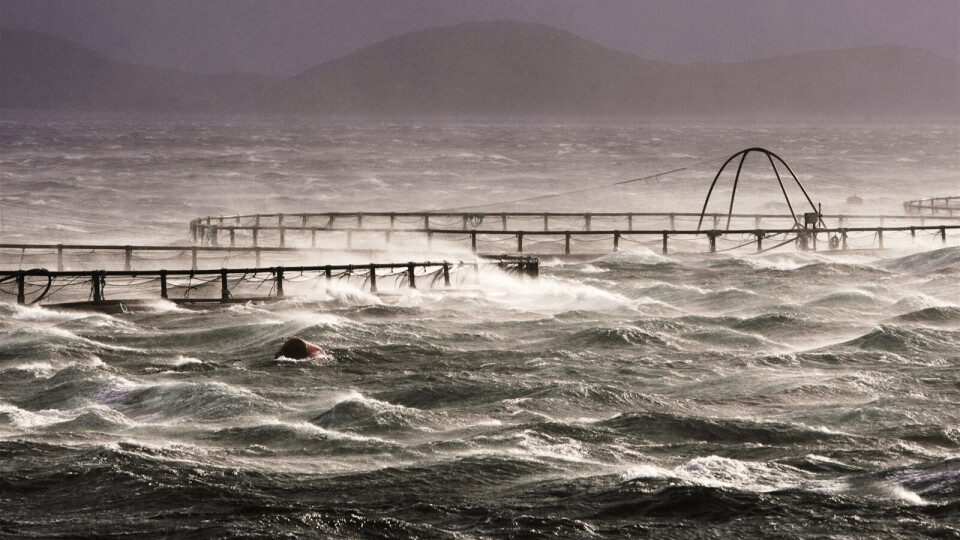
Mowi chooses bigger pens to match big ambition
Larger, 160-metre pens now permitted in Scotland following a change to regulations are being installed at a Mowi farm on Lewis.
The Seaforth and Noster site will be the first of four Mowi farms to be upgraded from 120m-circumference pens this year, with more to follow in coming years. The site will be stocked in April/May.
Larger pens are part of Mowi Scotland’s strategy to increase annual production from 65,000 gutted weight tonnes to 80,000 gwt over the next few years.
Deeper water
The decision by regulators to remove a de facto size limit on pens ties in with other rule changes that give salmon farmers more freedom to move pens to more advantageous areas within the boundaries of their sites, in the same way that land farmers can move fences in their fields.
This will enable them to moor pens in deeper water and use deeper nets if the site is suitable.
The rule changes do not increase the amount of allowed biomass on farms. This means that farms using bigger pens will have fewer pens but a similar footprint.
In the case of Seaforth and Noster two allowances are combined to give a maximum of 4,330 tonnes of biomass. Pens, moorings and some the nets are being supplied by AKVA.
Seal protection
One of the advantages Mowi sees in larger pens is that that they offer the fish better protection from seals. The cages have a lower stocking density that 120m pens, which allows more room for the fish to swim away from the sides.
Larger collars also give the opportunity to use heavier nets which are harder for predators to bite through, and siting pens in deeper water allows more space under the bottom of the net, which also makes things more difficult for seals.
Mowi will both Dyneema and stronger HDPE nets at Seaforth and Noster.
“Both options have been chosen in part to trial each type with larger pens to help guide our decision making on the best type for future changes,” said a Mowi spokesperson.
Deep feeding
The pens will not initially be fitted with Environets – double nets that Mowi uses to harmlessly eliminate biofouling – but that may change.
“We are always looking to innovate and improve our net systems and we are lucky to have some very talented people working on our farms who will be assessing this set up,” said the spokesperson.
“The team will also be looking at deeper feeding using lights in combination with lice skirts at this site to evaluate how these management measures help with things like sea lice control.”
200m pens
Another advantage of larger pens for Mowi, which intends to farm at more high-energy sites, is that they ride the waves better.
“Simply, there is more flexibility and less abrupt movement in the larger pens as the waves pass through,” said the spokesperson.
In the future, 200m pens like those commonly used in Norway are also likely to feature on Mowi farms.
“We’re always looking at locations where larger pens such as 200m pens may be best suited,” said the spokesperson.























































